Scientific committee
Researchers, IT staff, and professors from Department of Classical Philology and Italian Studies (FICLIT), the Department of Computer Science and Engineering (DISI) and other.

Francesca Tomasi
Head of /DH.arc centre, Full Professor
Francesca Tomasi is Full Professor in Archival Science, Bibliography and Librarianship (M-STO/08) at the Department of Classic Philology and Italian Studies. She works in the Digital Humanites domain, with a special interest to Knowledge Organization in LAM and semantic digital editing. She is involved in some projects, namely: Zeri & LODE as a project in the archival domain; Bufalini’s notebook and Vespasiano da Bisticci’s letters, in the field of digital philology. She has been Head of the Library of Humanities (BDU) at the University of Bologna, President of AIUCD (Italian Association of DH), visiting professor at the Department of Digital Humanities at King’s College (London) and Coordinator of DHDK master degree. Now she is the Director of the PhD in Cultural Heritge in the Digital Ecosystem at the University of Bologna. She teaches Knowledge Organization and Cultural Heritage at DHDK; Informatica Umanistica for undergraduate and Digital humanities and Cultural Heritage for postgraduate.

Paolo Bonora
Technical manager
Paolo Bonora holds a PhD in Cultural Heritage Studies and is a technician at the Department of Classical Philology and Italian Studies (FICLIT) and the technical manager of the Department's Digital Library. He currently works on Semantic Web and Machine Learning applications for Performing Arts Studies. He is involved in the Research Center for Interaction with the Cultural and Creative Industries (C.R.I.C.C.) leading the LinkingOpera project. He is the digital curator of the Corago LOD knowledge base and the Repertorio della Poesia Italiana in Musica 1500-1700 (RePIM). His main research topics are historical knowledge representation; semantic indexing, browsing, and data visualization; information extraction through NLP analysis.
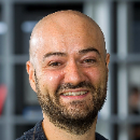
Giovanni Colavizza
Associate Professor
Giovanni Colavizza is an associate professor of computer science. Colavizza is specialised in machine learning applications for cultural and artistic heritage, and GLAM (Galleries, Libraries, Archives, Museums).
His research interests span the automatic recognition of texts, representation learning for language, images, and graphs, and quantitative methods for cultural and social data analysis. Thematic areas of interest comprise historical, literary and artistic sources, scientific communication, social media, and Wikipedia.
Colavizza is also the CTO and co-founder of Odoma, a Swiss-based studio providing customised machine learning solutions for the cultural and creative sectors.
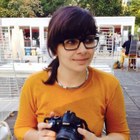
Marilena Daquino
Assistant professor
Marilena Daquino is Research Assistant in Library and Information Science (M-STO/08) at the Department of Classic Philology and Italian Studies. She currently works on Semantic Web applications for the Arts and Photography field in the Cultural Heritage domain. Her topics include Ontology development, Knowledge Representation and Information Retrieval, mainly related to art historical data. She is involved in several projects at /DH.arc, namely: Zeri & LODE, mAuth, ARTchives, Bufalini’s notebook and Vespasiano da Bisticci’s letters Semantic Digital Editions. She worked for three years as metadata specialist at the Multimedia Centre (CRR-MM) of the University of Bologna. She collaborates with the Federico Zeri Foundation of the University of Bologna on several projects. She is an active member of PHAROS and she is a member of the editorial board of linked.art project. At DHDK she teaches Information visualization.
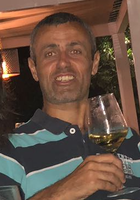
Angelo Di Iorio
Associate Professor
Angelo Di Iorio is Associate Professor at the Department of Computer Science and Engineering (DISI) of the University of Bologna. He holds a PhD in Computer Science and he is expert of markup languages and document engineering, in particular his research is focused on design patterns for digital documents. His interests also include: semantic publishing, versioning and diff-ing techniques, collaborative editing, Web technologies, formatting and pagination. Currently he is working on two main projects in Digital Humanities: SSE, a web-based text editor and word processing software for technical and literary documents based on templates and document patterns, and PhiloEditor, a platform for presentation and editing of multiple editorial drafts. He teaches Data Structure and Algorithms in the first cycle degree programme in Computer Science, Laboratory of Internet Programming in the first cycle degree programme in Information Science for Management and Computer Science basics in the first cycle degree programme of Geology.

Ivan Heibi
Research assistant
Ivan Heibi has a PhD in Computer Science at FICLIT and previously research assistant at the same Department. He is an active member of the OpenCitations project and the main topic of his studies is "The application of Semantic Publishing technologies in the Science of Science research domain". His work focuses on Semantic Web (Linked Data) technologies, Semantic publishing and open citations. His main contribution to OpenCitations is the development of a configurable search platform for RDF data called OSCAR, and a browsing tool called LUCINDA. He is currently involved in several projects at /DH.arc, namely: OpenCitations Enhancement Project, Open Biomedical Citations in Context Corpus.

Paola Carmela Italia
Full Professor
She is Full Professor of Italian Philology (L-FIL-LET/13) at the Department of Classic Philology and Italian Studies. She currently works on Italian Literature, from '700 to '900 (Leopardi, Manzoni, Gadda, Bassani, Savinio), with a specific interest in Authorial Philology (www.filologiadautore.it), Digital Philology, Authorship and new Technologies (Photonics and 3D) applied to Literary Manuscripts (Manuscreative 2017, 2018). She is involved, with Angelo Di Iorio, Fabio Vitali, Francesca Tomasi, in Philoeditor, a digital project at /DH.arc. She is involved in other digital projects: THESMA PROJECT (with University of Rome, La Sapienza; 2014-); PRIN Manzoni Online: Manuscripts, Books, Editions and Tools: PRIN 2015FN4ZSN (with University of Parma and Milan); www.Bitesonline.com; WIKI Gadda and WIKI Leopardi (Filologiadautore.it-University of Bologna). She collaborates with ITEM (CNRS, Paris)-Contini Equipe, Wellesley College (Boston, USA)-Digital Collections, Concordia University (Montreal, CA)-Varchi’s Florentine History; University of Edinburgh (EN)-Gadda Price, University of Granada (ES)-Erasmus +; University of Ljiubliana (SL)-Erasmus +. She teaches Scholarly editing and Digital Approach at DHDK, Italian Literature at History Course, Modern and Contemporary Italian Literature and Philology at Italian Studies Master Degree.
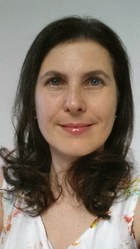
Monica Palmirani
Full Professor
Monica Palmirani is full professor in Legal Informatics at University of Bologna, School of Law. She co-chairs the LegalDocML and the LegalRuleML technical committees that co-founded. Since 2013 she serves on the OASIS LegalXML Steering Committee. In 2015, she was recognized as an OASIS Distinguished Contributor. She was member of Board of Directors of OASIS from 2016 till 2018. Her research fields include XML techniques (NormaInRete, CEN Metalex, Akoma Ntoso, LegalRuleML) for modelling legal documents, legal knowledge, normative rules and legal ontologies, and ICT-enhanced legal drafting techniques using artificial intelligence techniques. Those annotated legal sources are the basis for applying legal analytics and Machine Learning techniques for improving the semantic annotation. She is involved also in eGovernment research fields related to AI, Big Data and Open Government Data, Smart Contract, DTL especially for improving data protection, licensing and transparency at national and international level. She is the coordinator of International PhD programme “Law, Science and Technology” funded by the European Commission with Marie-Curie instrument, she is also the scientific coordinator of the Legal Blockchain Lab. She has published more than 100 papers and she has been chair of several international conferences, editor of book series, member of the scientific committee of “AI and Law” Journal, and member of the IAAIL Executive Committee.
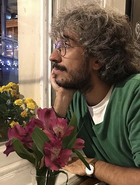
Silvio Peroni
Associate Professor
Silvio Peroni holds a PhD in Computer Science and he is an Associate Professor at the Department of Classical Philology and Italian Studies, University of Bologna. He is an expert in document markup and semantic descriptions of bibliographic entities using OWL ontologies, and one of the major international experts in Semantic Publishing. His recent works concern the empirical analysis of the nature of scholarly citations in different fields, the study of visualisation and browsing interfaces for semantic data, and the study of scholarly metrics and networks (citations, authors, etc.) for analysing scholarly fields and communities. He is involved in several projects at /DH.arc, namely: OpenCitations Enhancement Project, Open Biomedical Citations in Context Corpus, CATARSI, Zeri & LODE, Bufalini’s notebook. He is one of the main developers of the SPAR Ontologies, he is Director of OpenCitations, and founding member of the Initiative for Open Citations (I4OC). In addition, it serves in the Editorial Board of Data Science, PeerJ Computer Science, and Research Ideas and Outcomes. He is professor of Computational Thinking and Programming at the International Second Cycle degree programme in Digital Humanities and Digital Knowledge, and of Basic Informatics at the First Cycle Degree programme in Humanities.
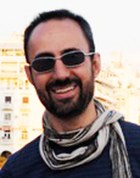
Fabio Tamburini
Full Professor
Fabio Tamburini obtained a degree in Computer Science with distinction applying neural networks to pattern recognition problems. He started his activity working at the Interfaculty Centre for Applied and Theoretical Linguistics - University of Bologna. In 2004 he received a PhD in Electronics and Computer Science Engineering from the University of Bologna, defending a thesis on the Automatic detection of prosodic prominence in continuous speech. He is now associate professor in the same University, where, since 2001, he has been teaching various Computational Linguistics and Applied Linguistics courses for the Faculty of Arts and Humanities and the Faculty of Mathematics, Physics and Natural Sciences both at undergraduate and postgraduate level. His main scientific interests span through Speech Processing, Natural Language Processing and Corpus Linguistics. He is currently teaching Text retrieval, analysis and mining at DHDK.
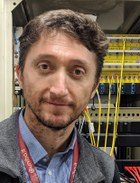
Tommaso Vitale
IT Staff
Tommaso Vitale obtained bachelor’s degree in Computer Science from the University of Bologna. He was the person in charge of the information and communication technology at Department of Classical Philology and Italian Studies (FICLIT) since 2008. From 2018 he is involved with special tasks related to the set up and maintenance of the Digital Humanities Advanced Research Centre /DH.arc software and hardware technologies as well as digital collections and projects.

Fabio Vitali
Full Professor
Fabio Vitali is Full Professor in Computer Science (INF/01) at the Department of Computer Science and Engineering (DISI) of the University of Bologna. He holds a PhD in Computer and Law from the University of Bologna, and has been working for a long time on digital document formats, hypertext system, web technologies and usability and user experience design. He has been part of the W3C Working Group on XML Schema, and is co-chair of the OASIS TC on LegalDocML. He is the main author of Italian and international standards on legislative XML such asNormeInRete,CEN MetalexandAkoma Ntoso, which became an OASIS standard in 2018. Current projects in Digital Humanities includeSSE, a web-based text editor and word processing software for technical and literary documents based on templates and document patterns,ZERI & lode, a description model for photographic archives,PhiloEditor, a representation and editing tool for philological and version annotation of literary documents. He is the UniBo delegate to theTime Machineproject recently approved as a FET Flagship candidate within the EU Horizon2020 funding program. He teaches Information Modeling and Web Technologies for the first year of DHDK, and Usability and User Experience Design at the second year. He also teaches Web Technologies for undergraduate Computer Science students and Usability and User Experience Design for graduate Computer Science students.
